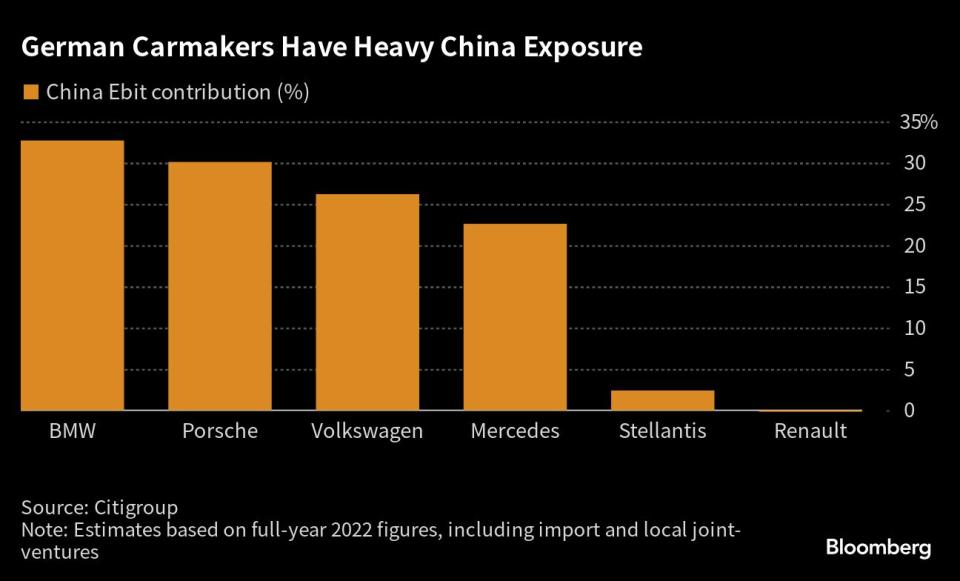EU’s Gentiloni Plays Down Risk of China Retaliation on EV Probe
(Bloomberg) -- The European Union downplayed the potential of a harsh Chinese response to the bloc’s investigation of electric-vehicle subsidies.
Most Read from Bloomberg
Ultra-Rich Buy Ultra-Luxury Counseling to Get Kids Into Harvard
Billionaire Case Bets on Superfast Jet, AI Beyond Silicon Valley
Canada Postpones Trade Mission to India With Tensions On Rise
“There is no specific reason for retaliation,” Paolo Gentiloni, the EU’s economy chief, told reporters ahead of a meeting in Santiago de Compostela, Spain, on Friday. “But retaliation is always possible in this kind of thing.”
Why Europe Is Pushing Back Against Chinese EV Influx: QuickTake
The European Commission, the EU’s executive arm, announced the probe this week. It may take nine months and will probably lead to new EU tariffs of as much as 27.5% on Chinese EV imports, according to a person familiar with the matter.
Europe has deep trade ties with China, a fact that would make the EU particularly vulnerable if the probe escalated into a trade war. German automakers Volkswagen AG, Mercedes-Benz AG and Bayerische Motoren Werke AG have built dozens of factories in China and all three manufacturers now sell more vehicles in China than any other market.
The share of Chinese brands of electric vehicles in the bloc was 8% last year, according to an EU official. With Chinese models about 20% cheaper than domestic offerings, the expectation is that they will control 15% by 2025.
“We have every interest to strike the right balance between ensuring a level playing field at a global level but of promoting international trade,” Spanish Finance Minister Nadia Calvino told reporters before a meeting with her euro-area counterparts. “I am sure that the European Commission will get it right on that front.”
The investigation marks the first concrete step to beat back rival state support for green technologies after more than a year of ever-larger subsidies in the US, China, the UK and Europe. Depending on the results, it could move the trading partners toward tit-for-tat protectionist measures.
The EV probe against China is part of a broader EU effort to “de-risk” the relationship without “de-coupling.” This has played out in several areas, including restricting sales of high-end semiconductors and implementing export controls related to quantum computing and artificial intelligence. The bloc has also put in place new instruments to address China’s coercive practices.
“We know that the impact of trade with China is quite different among member states,” Gentiloni said. “If we consider the overall EU situation, the trade with China is 2.5% of our trade.”
--With assistance from Alessandra Migliaccio, William Horobin and Alonso Soto.
Most Read from Bloomberg Businessweek
How Sam Bankman-Fried’s Elite Parents Enabled His Crypto Empire
The Massive Guatemalan Operation That Wants to Sell Americans Their Old Clothes Back
James Dolan’s $2.3 Billion Sphere Is Raising Eyebrows—in a Good Way
©2023 Bloomberg L.P.



